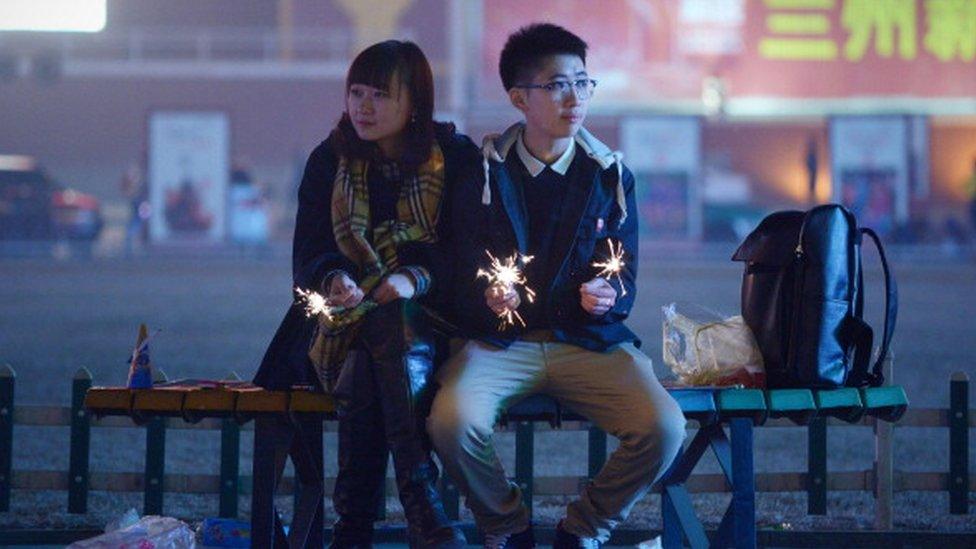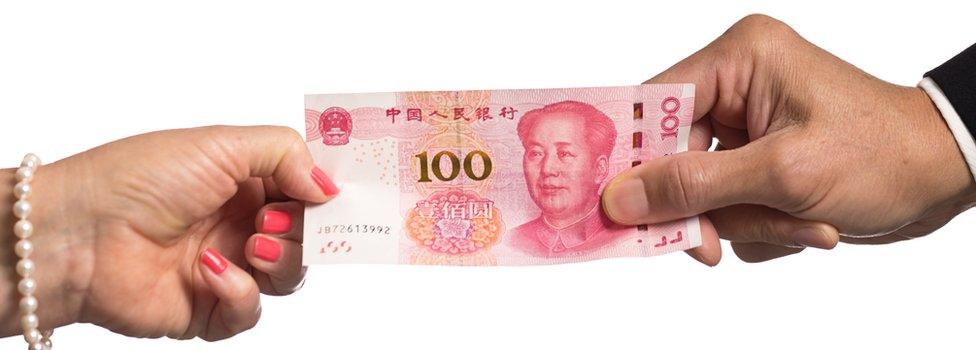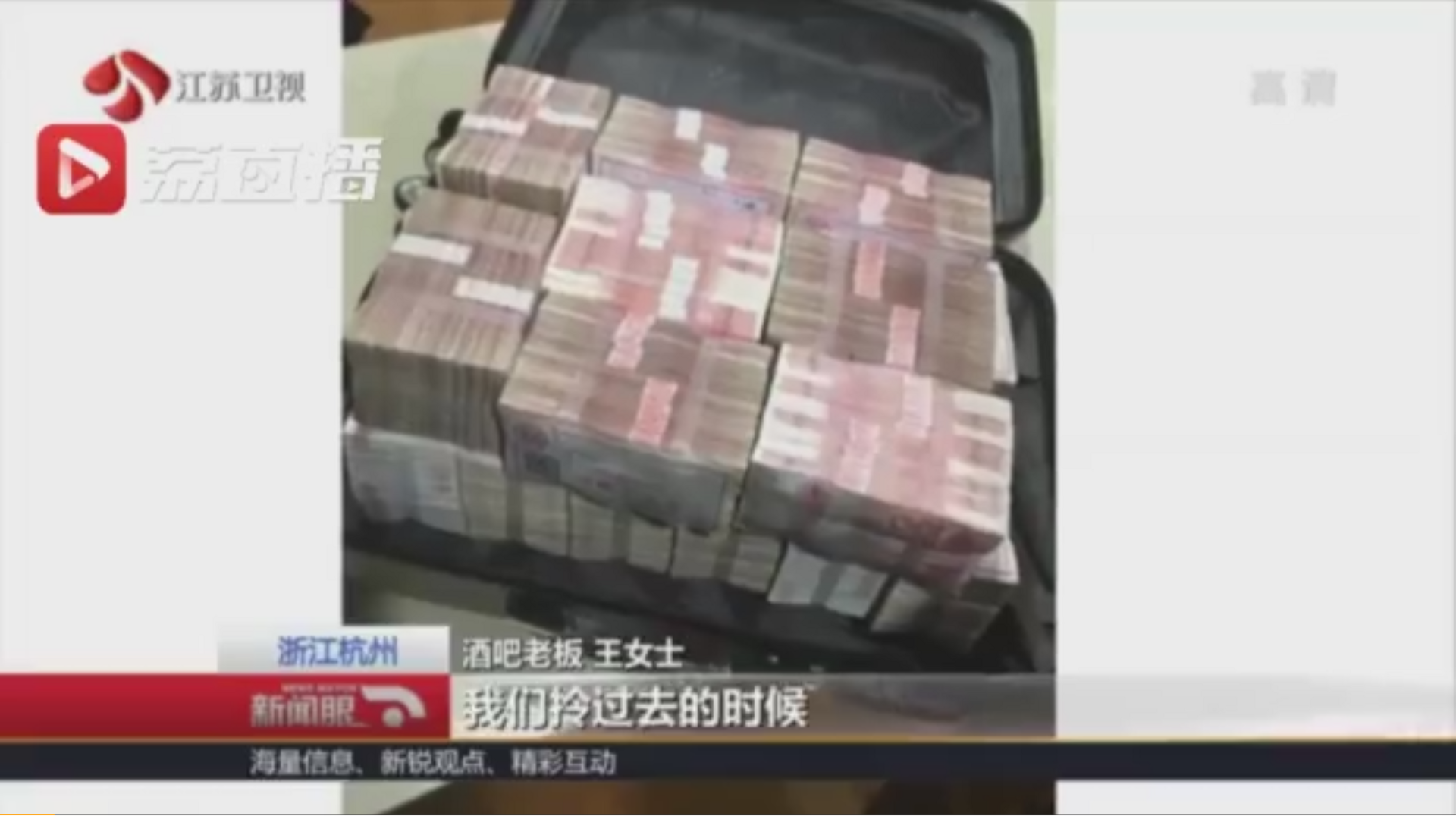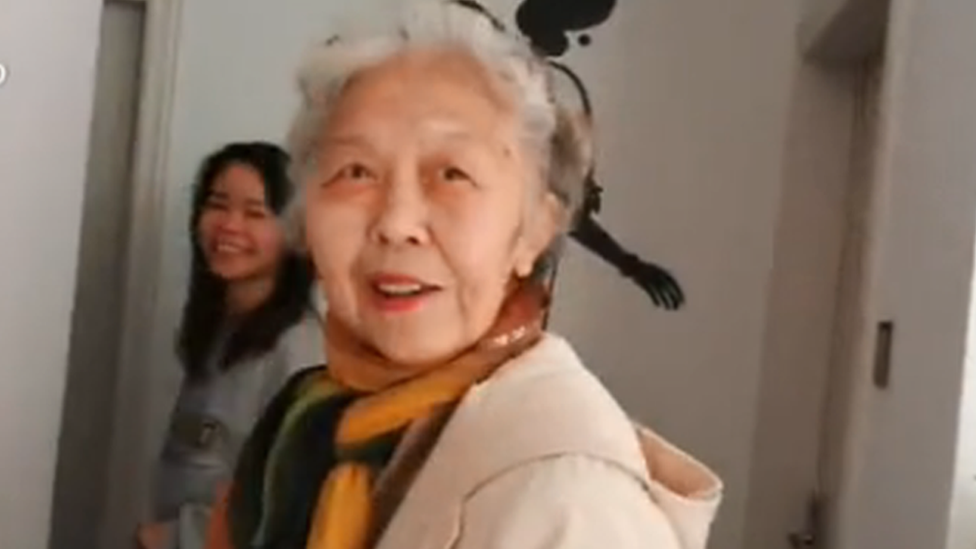Would you pay your ex a 'break-up fee'?
- Published

Earlier this month, police in the eastern Chinese city of Hangzhou responded to a call after bar staff reported finding a suspicious suitcase.
It contained two million yuan in cash ($314,204; £233,323) - an extraordinary amount of money, maybe even life-changing.
They managed to track down the owner, who according to the local police, had arranged to meet with his ex-girlfriend in the bar.
The money? It was a "break-up fee" a new trend in Chinese dating.
The price of true love?
Everyone knows that dating can be expensive; forking out a bit of cash to buy drinks or meals in the early stages of a relationship, or buying gifts and holidays later on.
No longer content to just have the awkward meeting to hand each others' stuff back, break-up fees have emerged in recent years in China as a sort of compensation at the end of a long-term relationship.
While not legally binding, it's a bit like one party giving their former partner a divorce settlement.

Romantic maybe - but who picks up the bill when the spark has died?
It's the person that ends the relationship that pays the fee. They decide, based on the amount of time, effort and money they have invested in the relationship, how much money they should give to their former partner.
Some people look pragmatically at the amount of money their partner had spent on them while they were dating, whereas others set a levy based on how severe they think the emotional damage of the break-up will be.
Break-up fees are more commonly paid by men - out of guilt or in order to offset their partner's upset. However, increasingly some women see it as acceptable to pay a fee, given that it is traditionally the man who will pay for meals and gifts in a Chinese relationship.

Some reports suggest they're an urban phenomenon spurred on by increasing consumerism.
But others see them as a possible hangover from earlier times - when Chinese women were more financially dependent on men. Chinese attitudes towards dating have traditionally been pragmatic and geared towards marriage. So the fee is meant to prevent embittered parties from suffering emotional damage, and to help them start a clean slate with their former partner.
Reports suggest that the fee can specifically helps older women who feel they have lost opportunities that they might have had in their youth to either prioritise their career or meet "the one".
Cases of break-up fees which make it into the media range from the seemingly harmless, to those involving complicated court proceedings.
Some have been met with droll humour, such as a case in April where a woman sent her former partner an inventory of every single restaurant and hotel they had visited. She had painstakingly researched how much her partner had spent on her, and wanted to reimburse him what she thought she owed.
In January, a case in the eastern city of Ningbo involved a man demanding compensation from his girlfriend after she dumped him for going bald.
Other cases have been more serious. In November 2014, a man in southwest Sichuan province demanded compensation from his girlfriend after finding out that she had other partners.
They were both married but had been seeing each other for five years and he had often given her money to buy clothes. After the woman refused to pay the man a "break-up tax" multiple times, he went to her home and threw acid at her family.
He was arrested on suspected manslaughter, but argued that his behaviour could have been avoided if the couple had parted as equals.

You might also be interested in:


'A plaything of men?'
In the case of the money left in the Hangzhou bar, the Global Times reported that the woman had thought it was "a few million short".
"I didn't take it, and left. I told him to get it himself. That was it," it reports her as saying.

The amount of money found in the bar could have paid for a house in Hangzhou without a mortgage
She didn't realise, however, that her former boyfriend had already left the bar. Both subsequently turned up at the police station hoping that they might be able to recover the money.
It was returned to the man, who was told by police not to be so careless with it in the future. However, he said that he was still puzzled over whether the amount of money he had given to his ex-girlfriend was sufficient.
However, the man, who was in his twenties replied: "Is two million yuan a big sum?"
Users of the popular Sina Weibo microblog were incredulous, with one commenting: "Two million can buy you a decent house in Hangzhou."
"Why do you need money in order to leave?" one user asked, and another questioned the woman's will to be independent. "How must this woman regard herself? As a product or a plaything of men?"
Users noted the pressure that such fees put on Chinese men, especially given the country's notorious gender imbalance, external. "Why is it that men must always give women money and goods? Are men and women unequal?" one user asked.
It also called some to question the connection between money and love, and to ask whether such customs put added pressure on China's poor to find a partner.
BBC Monitoring, external reports and analyses news from TV, radio, web and print media around the world. You can follow BBC Monitoring on Twitter, external and Facebook, external.
- Published10 May 2018

- Published15 March 2018

- Published11 May 2018
